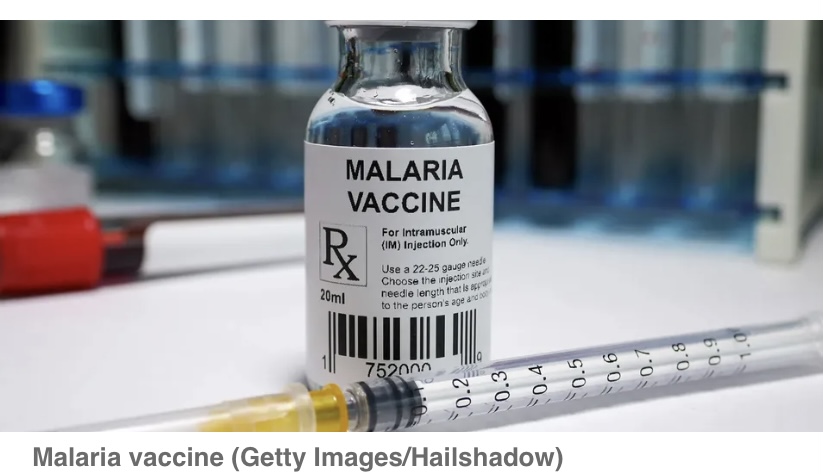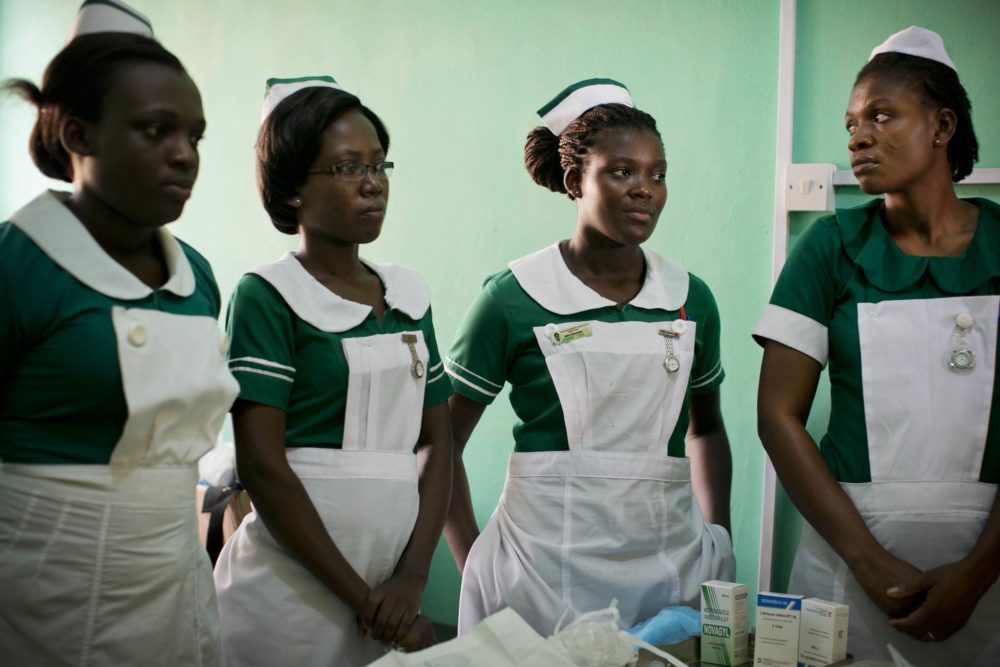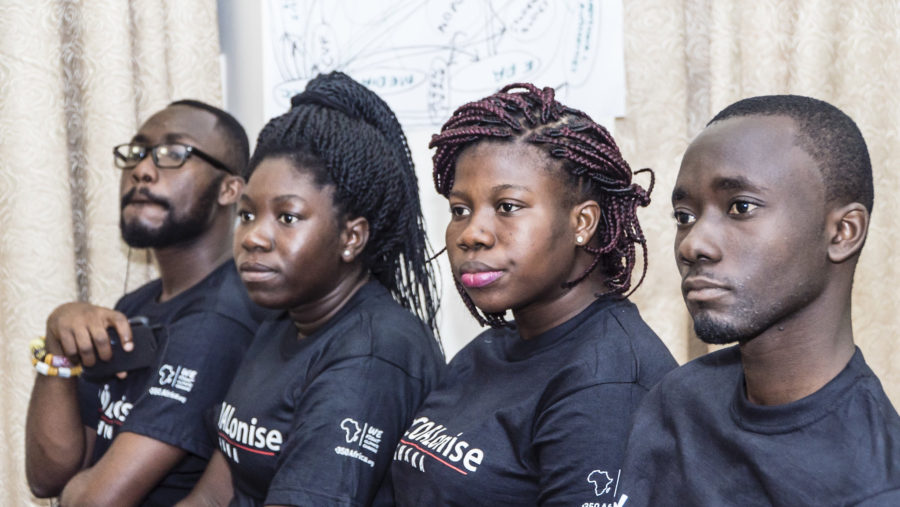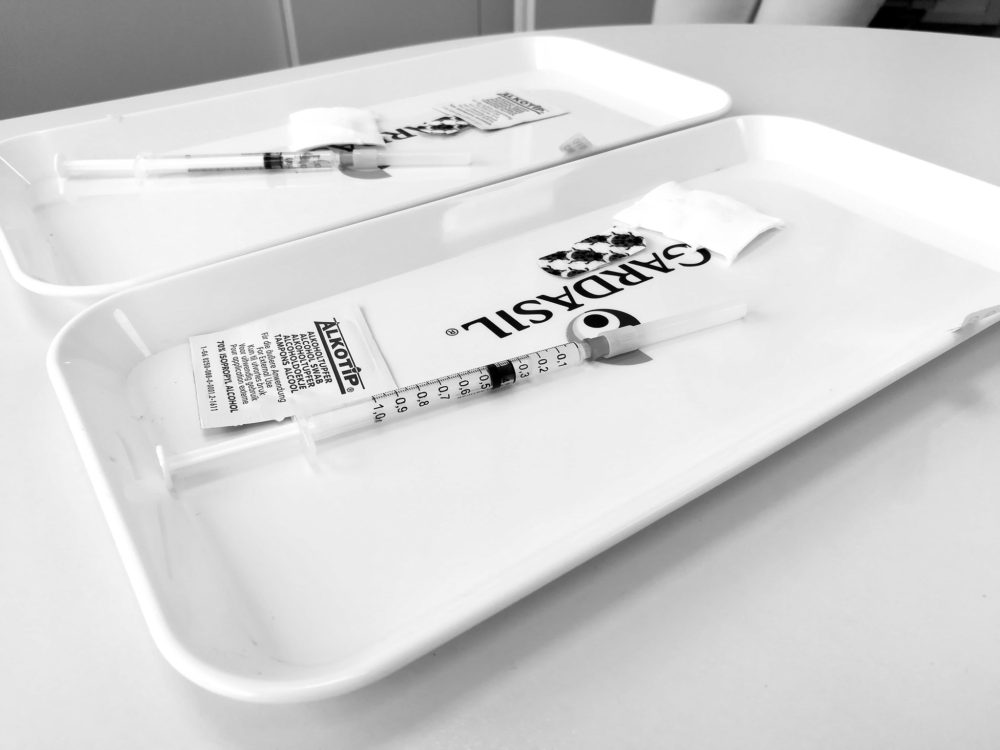
"Probably there is nothing in human nature more resonant with charges than the flow of energy between two biologically alike bodies, one of which has lain in amniotic bliss inside the other, one of which has laboured to give birth to the other. The materials are here for the deepest mutuality and the most painful estrangement."
In the last week, laboratory scientist working at the Komfo Anokye Teaching Hospital (KATH) have taken industrial action following the posting of two doctors to the laboratory unit of the hospital. This action has led to further wild cut action by laboratory scientist in other hospitals across the country. Industrial action by any group of health workers comes at significant health cost to citizens of the country. In the case of laboratory scientists, their cardinal role of performing scientific testing on samples and reporting their results to physicians if deferred could lead to inaccurate diagnosis, poor prognosis and increased mortality and morbidity.
On this basis, we have paused to ask ourselves whether the current action is proportionate and equitable based on the concerns of the laboratory scientist. We will try addressing this by looking at the reasons that have been adduced, mainly that there is a glass ceiling that curtails the career progression of a laboratory scientist. A simple look at the law leaves no doubt that indeed there are impediments in the way of these health professionals becoming consultants in our hospitals. It is as though the medical profession from whose womb laboratory scientist emerged, never anticipated that there will be a near severance of the umbilical cord. This to us is untenable as there are many pathways through which these professionals can rise to the point of becoming specialist. This could occur either through their professional college or through postgraduate education.
This situation in our view needs to be addressed and would require negotiations and amendment of relevant sections of Ghana's Health Professional Regulatory Bodies Act (Act 857, 2013). It may also require the Ministry of Health (MOH) to change administrative provisions that seem to prevent members of the laboratory science fraternity who are not medical doctors from becoming heads of laboratory science departments in hospitals. These changes should ensure that the pathways are well budgeted for and that financial clearance to remunerate does not become a challenge.
That said, it is important to note that there is no homogeneity when it comes to the branch of health that encompasses laboratory science. This is because there is a wide range of professionals with a science background that could specialize in the area. These include first degree holders with a background in biological science, biochemistry, human biology, medicine, dentistry and pharmacy etc. All these following a postgraduate qualification in virology, haematology, bacteriology, biomedical science or other fields of laboratory science will be deemed qualified to practice and work in any hospital laboratory if they choose to.
A cursory check on the website of the Ghana College of Physicians and Surgeons indicates that there is a pathway for physicians to specialise in the area of laboratory medicine. It is our understanding that the said doctors whose posting triggered this industrial action are specialists in this area; thus, making them eligible to practice unimpeded.
We thus find it strange that practitioners in this area who undertook their undergraduate degree in laboratory science will deem it right to expel others with equitable right to practice in this area from labs or withdraw their services because medical doctors with speciality have been posted to the lab. We also find it intriguing that they are taking up their grievance with the leadership of KATH rather than the MOH. We have these concerns because the management of KATH does not have the locus to prevent anyone with expertise in this field of health science from practising, neither can they change the law or any administrative provisions emanating from the MOH.
We would not fault readers if, at this point, they are under the impression that the resolution of this impasse could be straightforward. Unfortunately, we hold a contrary opinion. We do because the monitoring of print, electronic and social media leaves us in no doubt that historical undertones are fuelling this feud. Though not explicitly stated, it is clear that there is a perception that doctors in Ghana have often overreached as far as management positions in Ghana's health system are concerned. It seems the actions of the biomedical scientist, is aimed at addressing this by clipping their wings. We will admit that globally and locally this is a long-held view across health systems. The history of our health system is littered with many examples of this perceived opinion from nurses, pharmacist etc.
This is the elephant in the room that needs to be teased out and addressed delicately. Statements from the leadership and members of the GMA or Ghana Association of Medical Laboratory Scientists (GAMBLs) will only make matters worse. This is because the level of vitriol being shown by members of these two organisations during debates on these matters is unhealthy and has the potential of affecting workplace cordiality in the entire health system long after this situation has been resolved. Should this happen, team dynamics that are required to provide quality healthcare to Ghanaians could be compromised.
What we all must accept is that the perceived overreach of doctors in this area of medical practice is a result of the history of Medical Laboratory Science (MLS) in Ghana. In the past, there was not graduate pathway for MLS with most practitioners in this area being technicians. Hence, leadership had always been the preserve of doctors. With the opening up of the graduate pathway, there must be an acceptance that non-medic specialist in this area is a reality. With that in mind, there needs to be a move to a qualification, years of practice and competency-based framework that guarantees career progression and ensures equal opportunity to leadership positions for all irrespective of the area of primary qualification.
This will only be achieved if the hawks in both professions known to be fuelling the dispute are reigned in. We are aware that the National Labour Commission (NLC) has secured a court order intending to bring the strike action to an end. Legal as this may be, our view is that compelling laboratory scientist to return to their workspaces will only compound matters further. It will because it will not address the key issues that led us to this industrial action. At best, it will breed further acrimony and entrench the mistrust between the two groups of professionals.
The NLC should rather take advantage of this crisis and move to convene a stakeholder conversation that will ensure that the provisions of Act 857 that underpin the problem are amended to reflect the current reality of the expertise of all those who practice in the area of medical laboratory science. Whilst at it, there should be an agreement between members of the feuding professions to desist from open warfare. In the end, all parties would have to accept that no single profession has absolute control over laboratories in our health system and that the status quo cannot be maintained.
 The Unseen Hand of Africa's Silent COVID-19 Community Spread
The Unseen Hand of Africa's Silent COVID-19 Community Spread
 Vaccine Available: What Next for Africa's Fight Against Malaria?
Vaccine Available: What Next for Africa's Fight Against Malaria?
 Resolving the Challenges Around Vaccination Status Authentication
Resolving the Challenges Around Vaccination Status Authentication
 Pharmacy in Ghana: Evolving Towards Universal Health Coverage
Pharmacy in Ghana: Evolving Towards Universal Health Coverage
 Political Gaslighting Around Health Human Resource Recruitment
Political Gaslighting Around Health Human Resource Recruitment
 Unpacking the Confusion Surrounding the Testing Outcomes at KIA
Unpacking the Confusion Surrounding the Testing Outcomes at KIA
 Controlling Africa's COVID-19 Third Wave
Controlling Africa's COVID-19 Third Wave
 Confronting the Alarming Trend of Youth Suicide
Confronting the Alarming Trend of Youth Suicide
 The Balancing Act of Public Health and National Interest
The Balancing Act of Public Health and National Interest
 Prioritising the Health of the African Citizen
Prioritising the Health of the African Citizen
 An Open Letter to President Akufo-Addo on Vaccine Geopolitics
An Open Letter to President Akufo-Addo on Vaccine Geopolitics
 Factionalism and Feuding Risking Patient Safety in Ghana's Health System
Factionalism and Feuding Risking Patient Safety in Ghana's Health System
Copyright ©2021 MedicALL. Powered By Mojave